The challenge of asserting oneself in the competitive service market requires thoughtful positioning and the development of unique selling propositions (USPs). In this tutorial, we focus on the importance of USPs and how you can better address your target audience through targeted positioning. Using concrete examples and analyses of positioning, you will learn how to sharpen your own brand identity to become more familiar and appealing to potential customers.
Key Insights
- A clear positioning is essential for building trust.
- USPs should be communicated clearly and understandably.
- Testimonials and verifiable experiences are meaningful USPs.
- A close niche focus can provide competitive advantages.
Step-by-Step Guide to Positioning and USPs
Analysis of Examples
At the beginning of the process, you should examine various examples of freelancers or companies in your field. Look for websites that inspire you or that you would like to use as templates. I have reviewed some examples on Magento.com. Here you will find different positionings and the way these providers present their services.

The first example I refer to is the freelancer "Neoshops." Although she is well-positioned, the name alone does not immediately make it clear that she is a service provider. It would be more advantageous to use her own name or a succinct brand name to evoke trust. Such a clear brand image helps in creating a professional identity.
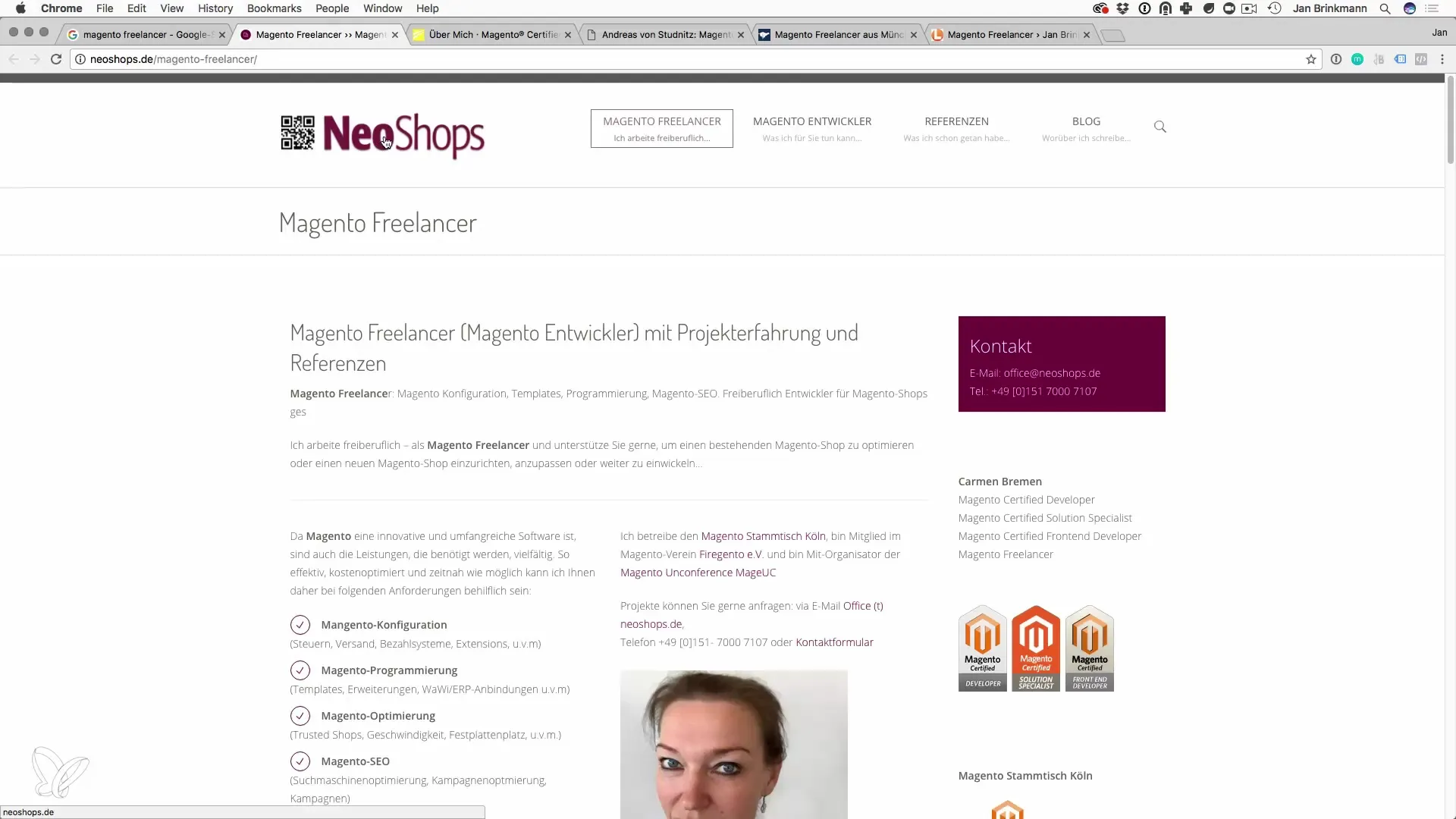
Defining Your USPs
The next steps involve developing your USPs. The term USP describes what makes your offer unique. A good example could be mentioning "Magento Freelancer" or "Magento Developer" in the title of your website. Such keywords not only help with search engine optimization (SEO) but also make it easier for potential customers to understand your services.
Additionally, you should mention concrete references and project experiences. Often many freelancers have similar skills, but the targeted communication of your experiences sets you apart from others. You should emphasize what you can do for the operators of Magento shops that do not have their own developer. This specific service description can make the difference.
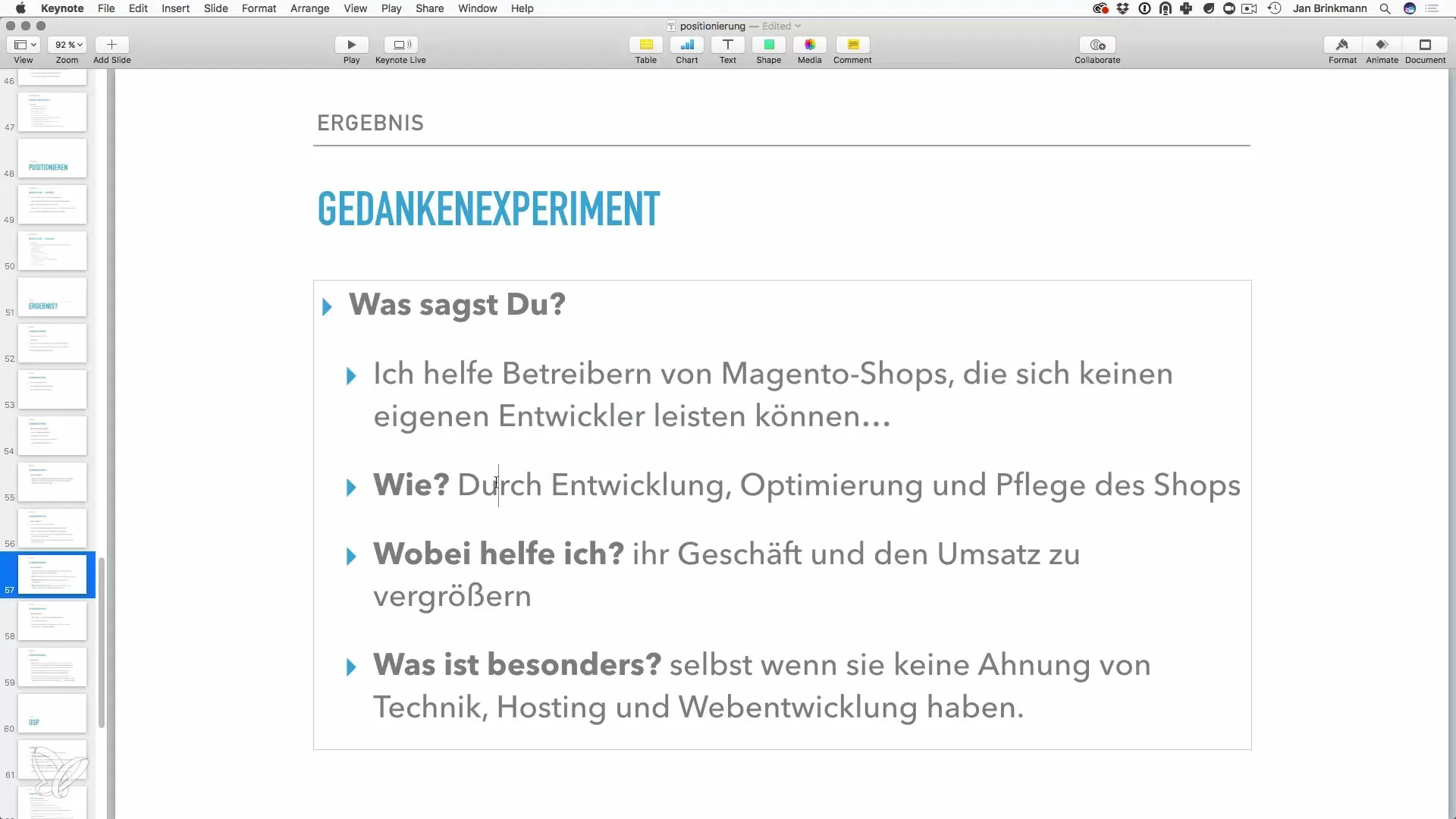
Trustworthiness through Qualifications
Make sure you display your qualifications and certifications prominently. Badges like "Certified Developer" or "Solution Specialist" are meaningful attributes that support your expertise. These certificates can be crucial for the trust of potential customers, as they reflect the quality of your work.
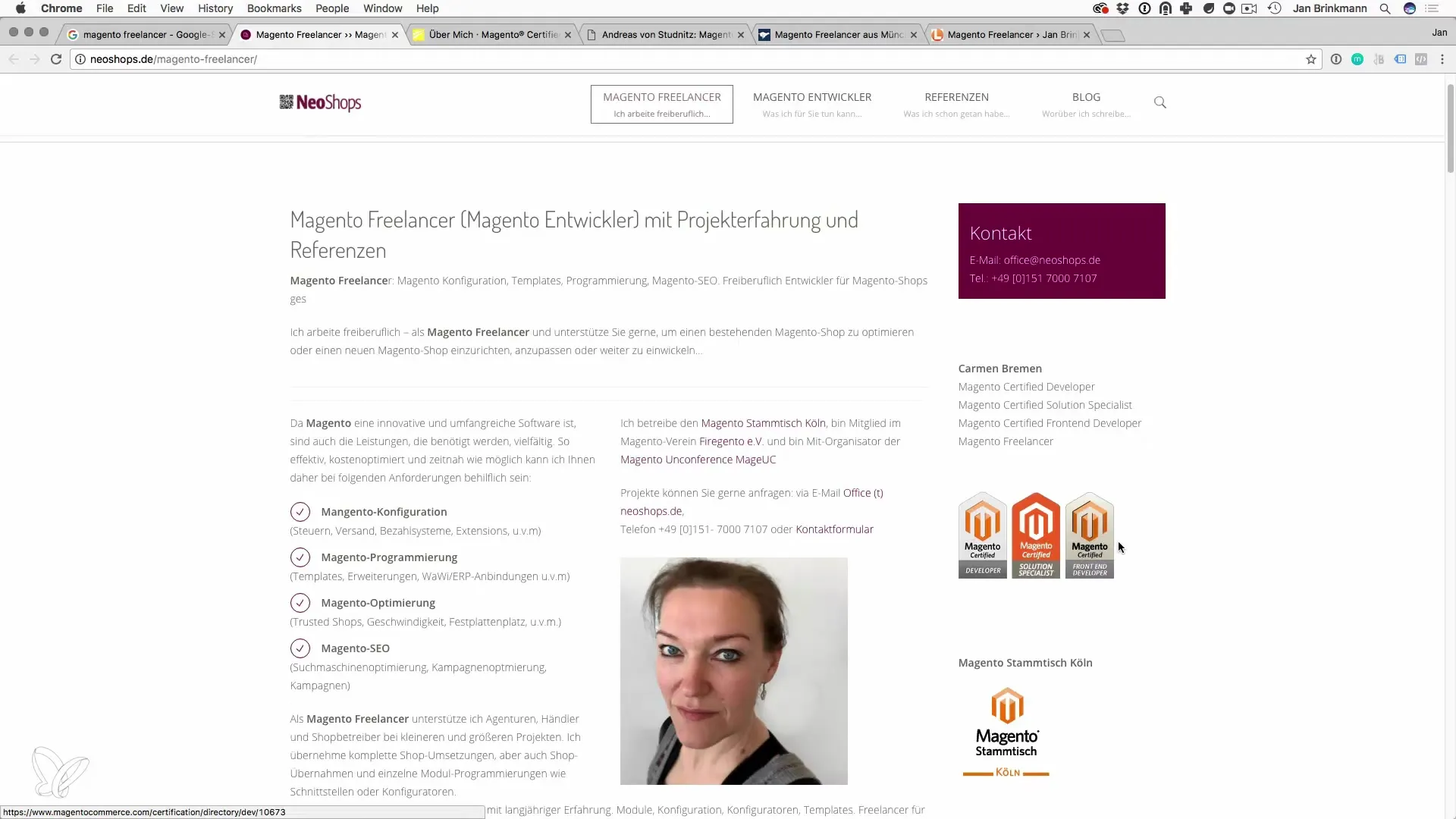
Additionally, your presence on platforms like LinkedIn or similar networks should leave a professional impression and underline your authority in the field of Magento development.
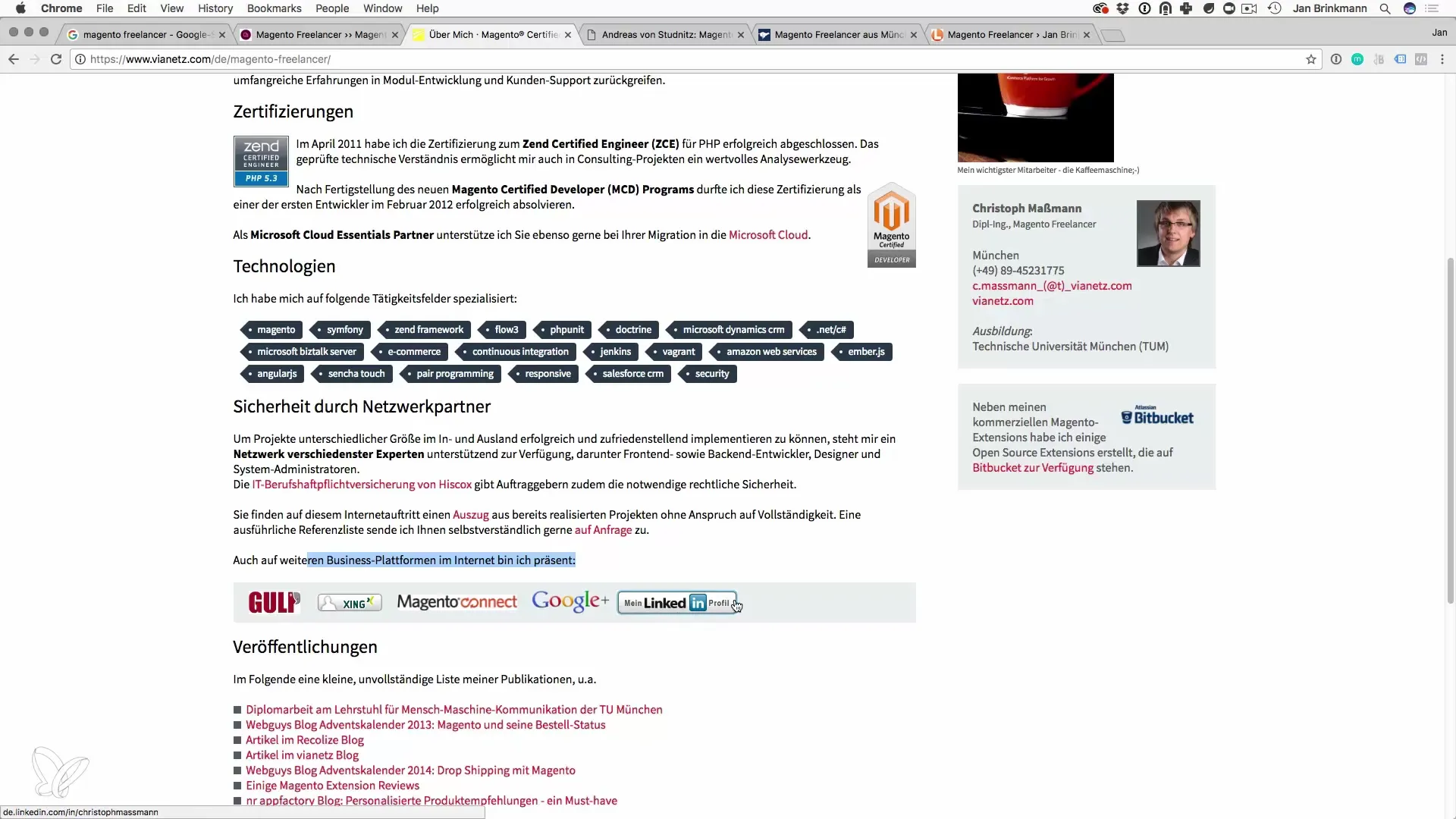
Niche Down: Focus Your Services
Another essential point in positioning is to consider whether you are diluting your services too much. If your offering includes too many different technologies or platforms, it can confuse potential customers. Instead, it is better to carve out a niche for yourself, for example, by only offering Magento development to be perceived as an expert in that area.
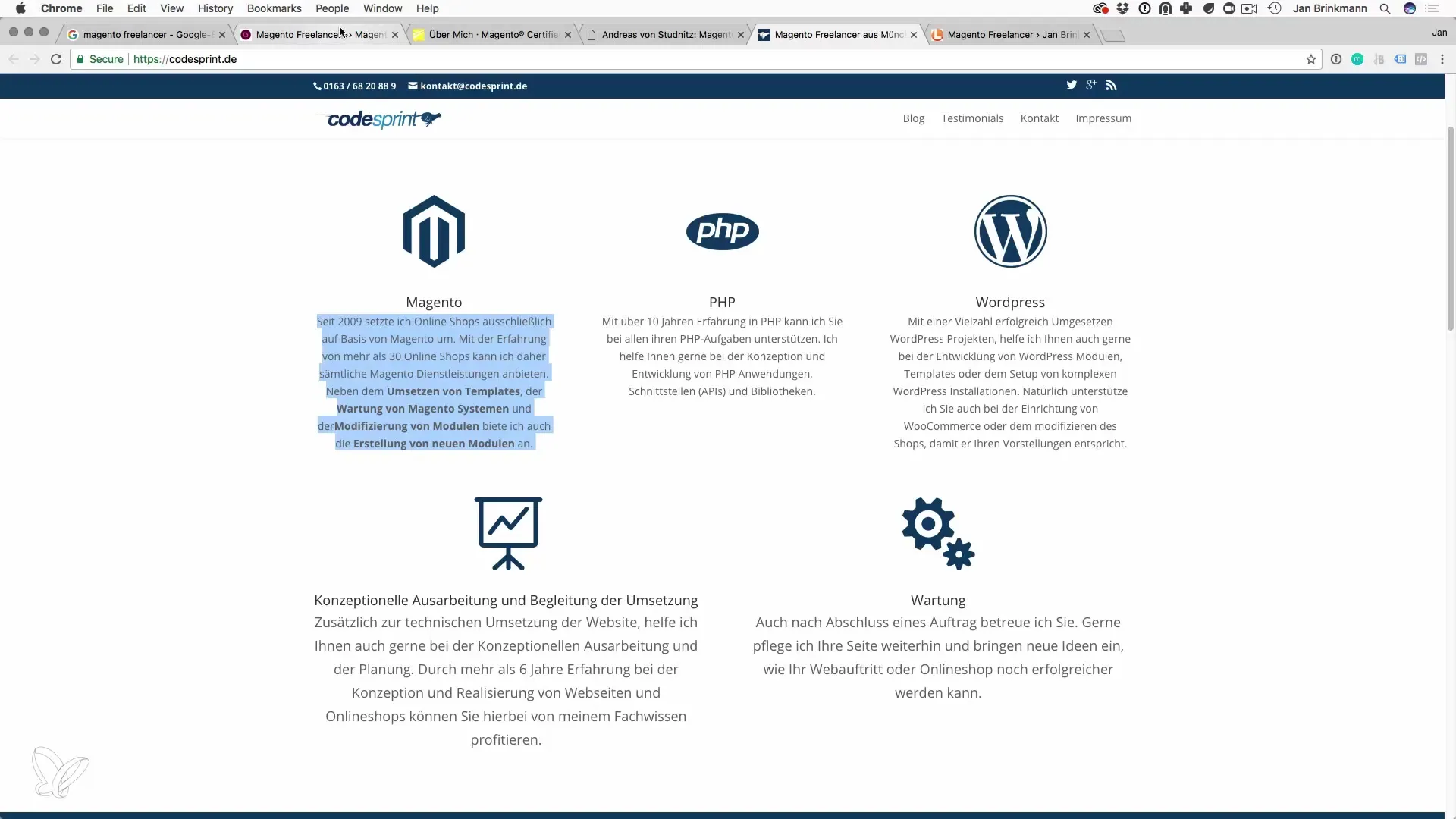
Ultimately, it is important that you also provide a clear service offering on your website to communicate your USPs. Clearly outline the benefits to your customers: if they do not have to worry about the technology, they can focus on their core competencies.
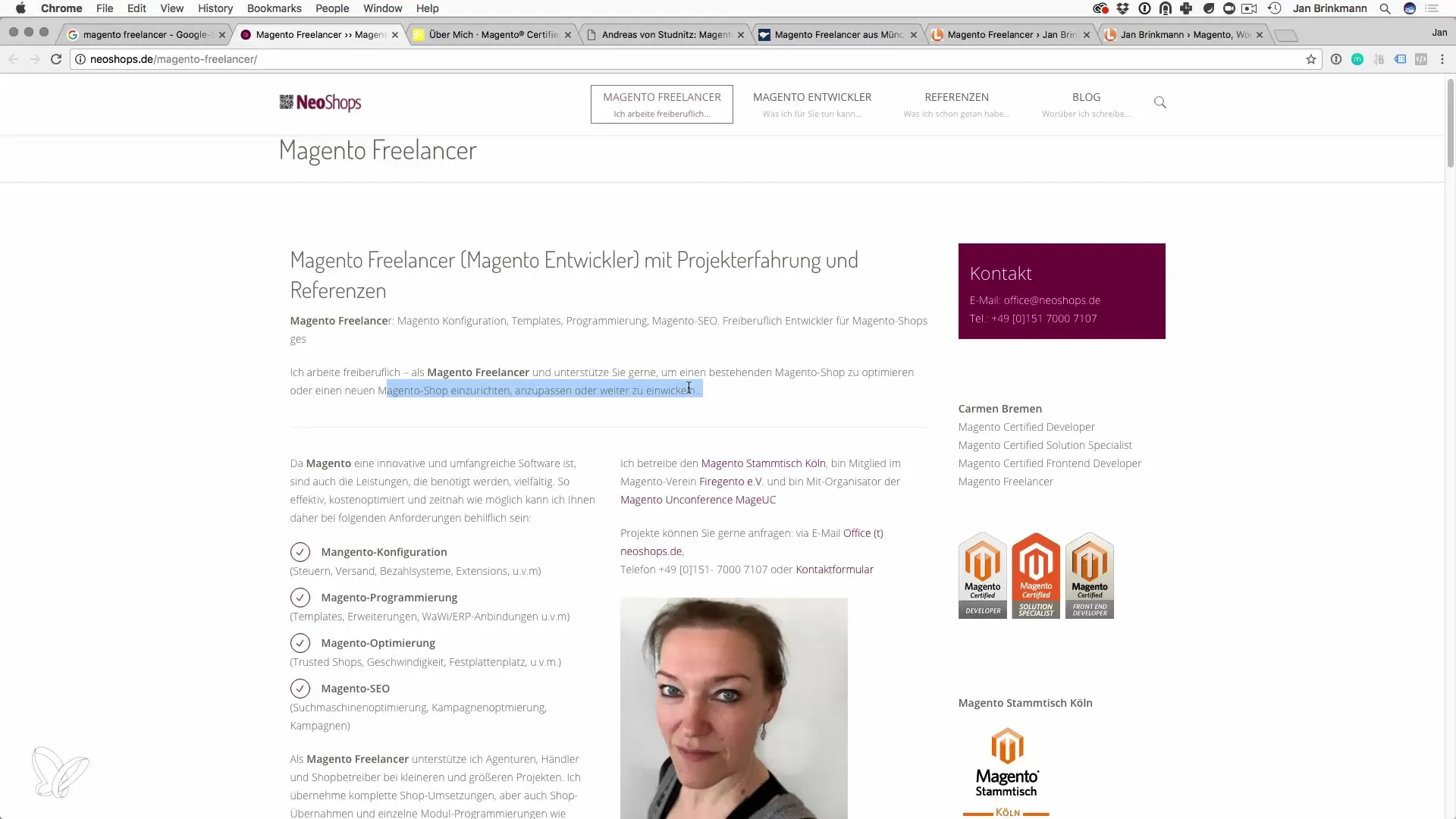
Summary – How to Find the Right Positioning and USPs as a Founder
By analyzing examples and establishing clear USPs, you can effectively position your services. It is worthwhile to utilize various strategies for communicating your strengths and qualifications to build trust with potential clients.
Frequently Asked Questions
What are USPs?USPs are unique selling propositions that distinguish your offer from others.
How do I find my positioning?Analyze competitors and look for ways to differentiate yourself through special offers or qualifications.
How important are references?References are crucial for demonstrating trustworthiness and competence.
Should I focus on a niche?Yes, a narrow focus can help position you as an expert in a specific area.


